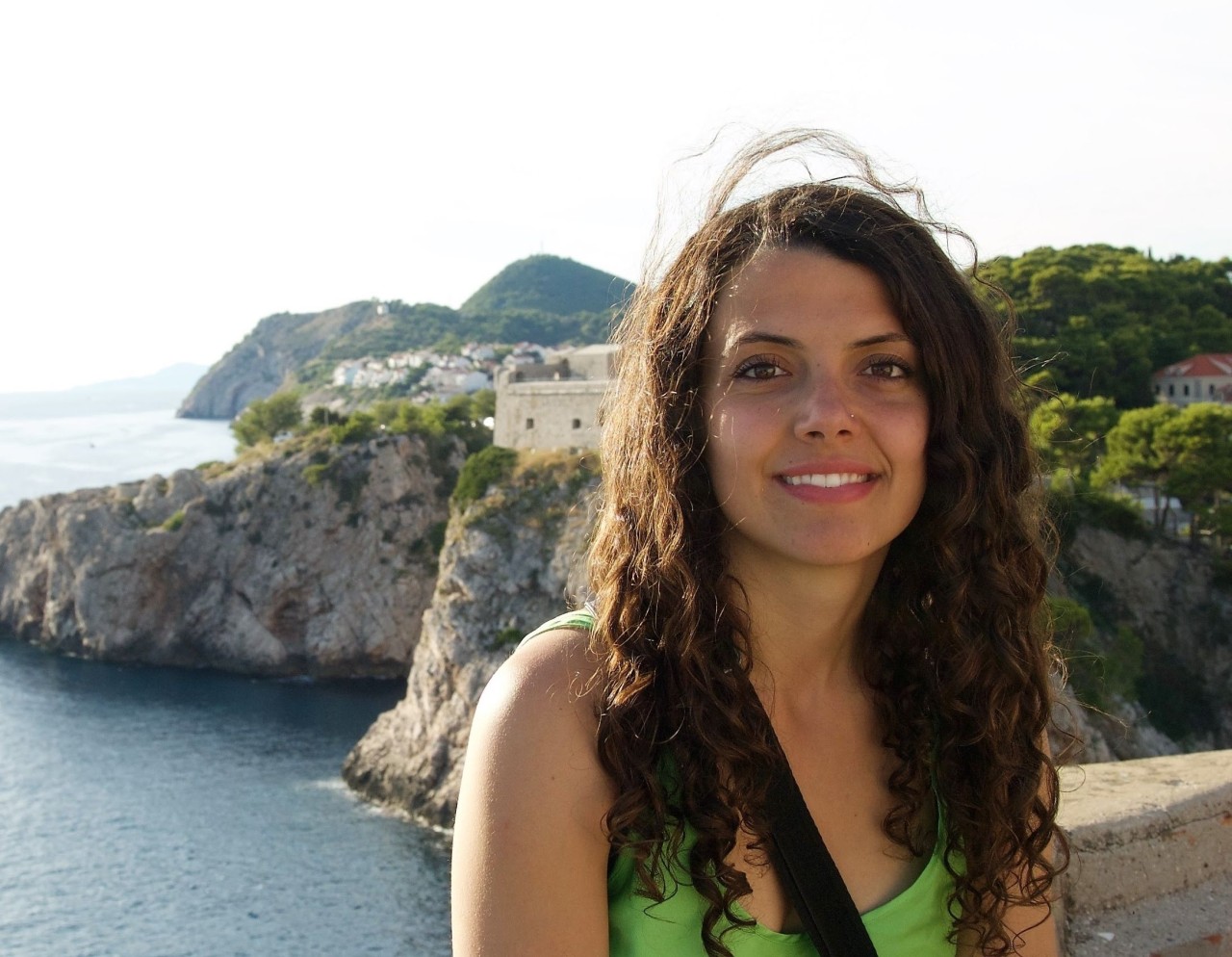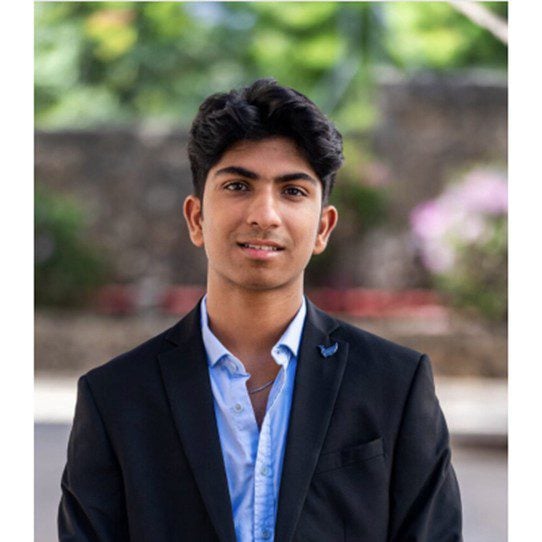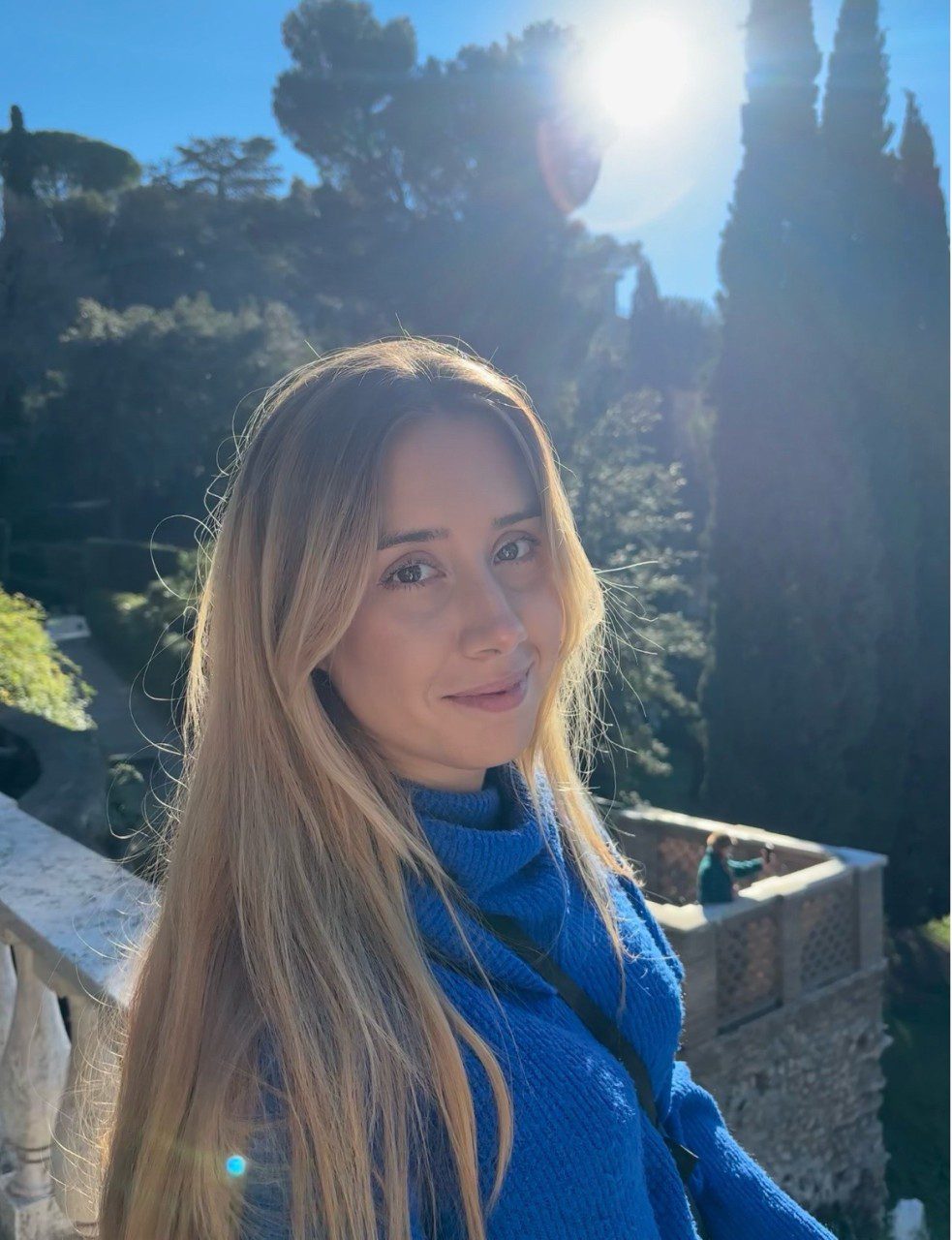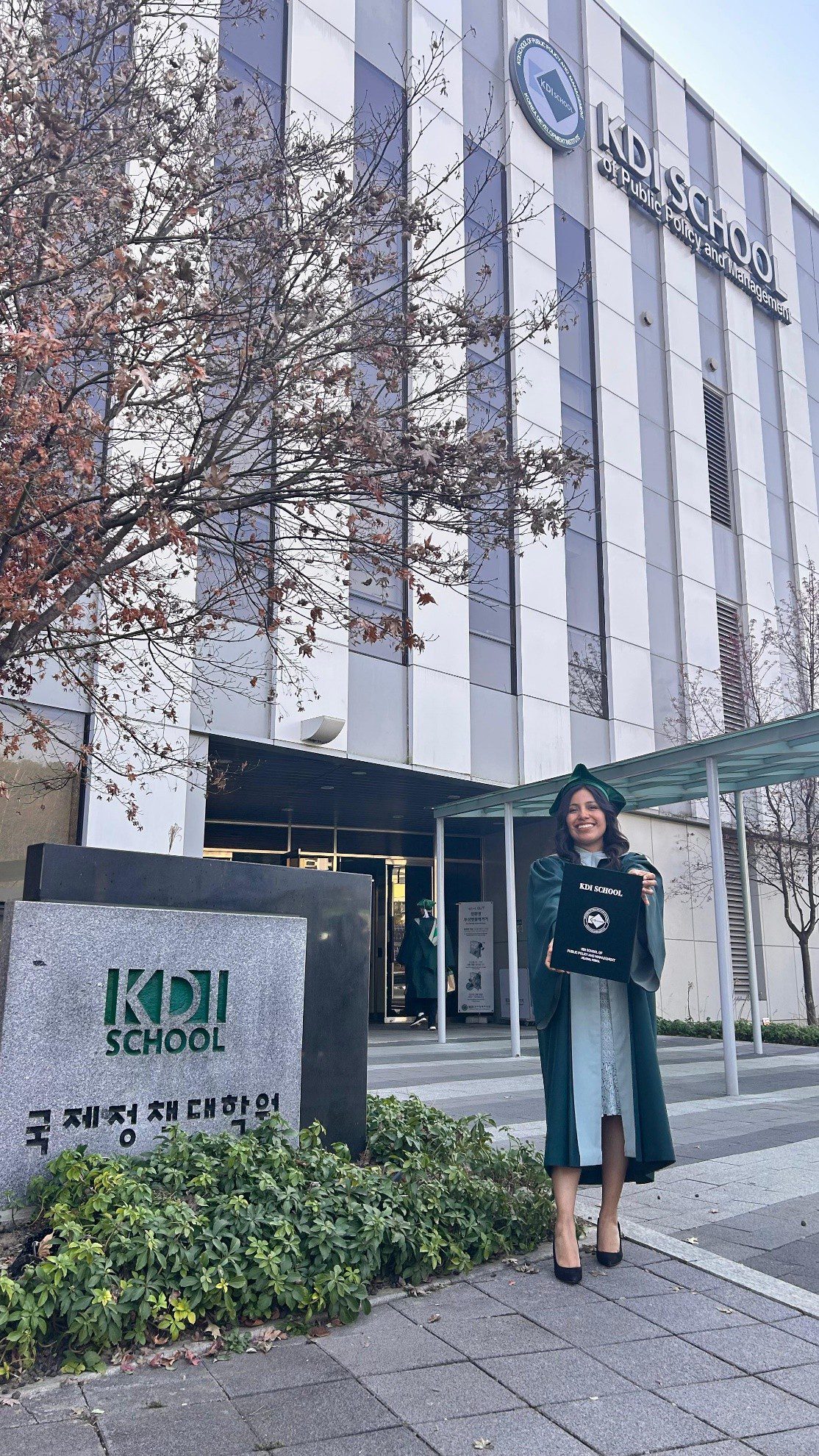Eiffel Excellence Scholarship Recipient, Aline Khoury from Brazil, Shares the Story of How She Applied for the Fully Funded Award to Pursue Her Master’s in Social Development at Paris V Descartes – Faculté de la Sorbonne
University: Paris V Descarte, Faculté de la Sorbonne
Degree: Master’s in Social Development
Previous Education: Bachelor’s in Social Sciences, University of São Paulo (USP); Bachelor’s in Communication, Pontifical Catholic University of São Paulo (PUC-SP)
Scholarship: Eiffel Excellence Scholarship – Fully Funded (monthly allowance, flight, visa, medical care, conference budget, living expenses coverage)
Other Offered Scholarships (if any): Government of Brazil Scholarship (Bachelor’s studies); Minor grants during PhD at University of Cambridge; Accepted at ENS Cachan Paris-Saclay (Social Policy) and Sciences Po (International Politics)
Social Media
LinkedIn: linkedin.com/in/alinekhoury/

The Journey
I am Aline Khoury, a sociologist from Brazil with a strong interest in sustainable, inclusive development and international cooperation. I first completed two Bachelor’s degrees in Brazil, Social Sciences at the University of São Paulo (USP) and Communication at the Pontifical Catholic University of São Paulo (PUC-SP). It was pivotal to have attended a public state-run university in Brazil (USP), since such universities are tuition-free and offer top-level education, enabling students to graduate with a very solid academic and professional preparation without being indebted, as commonly happens in many other countries (PUC-SP was a private university, but I could waive a few courses done at USP and therefore paid less overall). Soon after the robust preparation received in these Bachelor’s degrees, I decided to dive more deeply into social development issues through a Master’s degree directly in that field, as it would refine my skills for working with social impact projects, inclusion policies, and international cooperation for sustainable development. I thought that pursuing this in a more global environment and with students from multiple countries would be a very fruitful experience, besides having the chance to live on a different continent, so I applied for a few Master’s programmes in France to expand my horizons in this direction.
Later on, I did a PhD in Development Studies at the University of Cambridge (United Kingdom), but did not manage to receive a full scholarship, so I needed to use a combination of personal funds, minor grants from my college, and income from freelance part-time consulting work. I believe the difficulty in securing a scholarship for the PhD at Cambridge was due to a lack of previous knowledge about the colleges with the most funds; a challenging context with cuts in scholarship funding from the Brazilian and British governments at that period; and the lack of sharpness and strategic language in my applications for traditional scholarships such as those from the Gates Foundation and the Cambridge Trust. It was challenging to combine PhD research at such a high-level university with part-time freelance work, but I managed to complete the PhD and had a remarkable experience overall.
For the purpose of this post on scholarship applications, I will focus on my Master’s experience because it provides further details on scholarship processes.
Preparation for the Application (Selection Process, Grades, Language, etc.)
First, I carefully searched online for robust programmes in this field, and the Master’s in Social Development at Paris V Descartes - Faculté de la Sorbonne seemed very much in synergy with the multidisciplinary, integrated curriculum I aimed to pursue. I also applied to a few other programmes that seemed aligned with my academic and professional objectives, such as a Master’s in Social Policy at ENS Cachan Paris-Saclay, a Master’s in International Politics at Sciences Po, and in Social Sciences at EHESS and at Paris IV, being fully accepted to the first two and only shortlisted for the last two. But as soon as I was fully accepted for the Social Development Master’s at Paris V, I decided to prioritize that one because the syllabus seemed most aligned with my aims, and since these public universities in France are tuition-free. Thus, if I received a scholarship, I could use it entirely for living costs, allowing me to fully dedicate myself to my studies instead of needing freelance part-time jobs to cover living expenses. In France, there is also the great advantage of an official website that centralizes and organizes all information about scholarships nationwide (www.campusfrance.org), which was really useful for finding potential funds and grants. Besides that, I also organized all my application processes in a sheet with detailed information on dates, deadlines, costs, required documents and transcripts, etc, and the status of my search and application for each one.
In the application process for the Master’s, I sent my grade report (which had a GPA of around 8.8/10), a motivation letter, recommendation letters from previous professors, a brief research project, and the French test report. As I noticed that reference letters played a significant role, I chose my referees very carefully, combining professors who had senior positions and expertise in the key fields with those who knew my trajectory closely and thus were able to provide detailed accounts of my performance. Another aspect that I believe helped my application stand out was my previous work experience in related fields in social development. In Brazil, it is quite common for undergraduate students to work as interns or trainees in the area they are studying during their degree (which also has its pitfalls, since it can be very tiring, but anyway, this probably seemed remarkable to the selection team). Moreover, I had already acquired decent research experience while writing my final undergraduate dissertation and received the maximum grade and highest honors for it, which I believe also stood out at the Master’s selection. Finally, another point that might have been outstanding for the selection team was that I pursued two undergraduate programmes at two different universities at the same time (Social Sciences at the University of São Paulo and Communication at PUC-SP) with good performances in both overall, demonstrating an integrated multidisciplinary approach.
In terms of language requirements, my native language is Portuguese, and I had completed a full English course at that time, but my level of French was still basic. Although a few universities in France offered Master’s programmes in English, I was much more willing to do it in French for deeper cultural and societal immersion. At the time, most Master’s programmes required at least a C1 level in either the TCF (Test de Connaissance du Français) or DALF (Diplôme Approfondi de Langue Française), so I did an intensive course for about one semester and managed to get sufficient grades on the TCF. Regarding language more generally, international students, tourists, and workers frequently comment on how France can be particularly challenging if you do not know French. It made a big difference in my integration process to have a good level of French and to make a constant effort to improve it in lessons, exams, essays, and in my final dissertation fully written in French, besides in interpersonal relationships with new friends there. Thus, I strongly recommend learning as much as possible beforehand, even for students applying for international programmes in English.
Finally, it is worth mentioning that I applied directly to the second year of the two-year Master’s programme. Undergraduate programmes in France have three years, whereas in Brazil they mostly have four years (like the programmes I had done), and that allowed me to skip the first year of the Master’s, which I did. Some students choose to do this when possible, and some others prefer to do the first year anyways in order to solidify their studies and to have a longer time to get used to the Master's and the new life in a different country.
Eiffel Excellence Scholarship Details
It was a huge pleasure to be accepted into the Master’s in Social Development at Paris V University, and as soon as that happened, I started applying for scholarships (such as grants from the university itself, scholarships from the Brazilian government, and scholarships from the French and local governments, such as Île-de-France and Eiffel). After receiving negative responses from some of them, I was absolutely delighted to be selected for the Eiffel Scholarship from the French Ministry of Foreign Affairs, granted to a selected group of foreign students pursuing postgraduate degrees in France.
This scholarship provided me with a monthly allowance of around €1,100 in 2011, which was enough to cover all my living expenses at that period, including rent, food, educational materials, research costs, and leisure. It also included coverage of flight, visa, and basic medical care costs beyond the feeless public health system, as well as a minor extra budget to attend a few conferences abroad related to my research topic. Furthermore, it was very helpful to count on French welfare state policies for supporting students at that time, such as discounted transportation, low-cost subsidised cafeterias, and special student fares for cultural programmes. As tuition fees for public universities in France at the time were very low, even for international students, the scholarship budget could be used almost entirely for living expenses. This would not have been the case in private universities, such as Sciences Po, where I had also been selected, as tuition there was much higher and would have consumed almost all the scholarship funds, probably demanding me to work part-time, and thus hindering the studying experience, which I aimed to live as fully as possible in that year abroad.
Experience at Paris V Descartes and Academic Standing of the Institution
Overall, the experience in the Master’s in Social Development at Paris V Descartes - Faculté de la Sorbonne was pleasant and enriching. Although I entered straight into the second year, most courses were not directly based on the previous year, so it was feasible to follow them after an extra push in the initial weeks.
Some highlights of the Master’s were the multidisciplinary approach blending demography with anthropology, the small class size, which enabled interactive exchanges of ideas, and the multicultural environment with colleagues bringing varied perspectives to the topics discussed. Another high point of this Master’s is its focus on fieldwork, requiring students to dedicate an entire trimester of the academic year to applied research in their chosen context, followed by about a couple of months of analysis of the findings to produce the final dissertation. I did my fieldwork on cultural and social policies in the maroon community of San Basilio de Palenque in Colombia, and this has been one of the best experiences of my life, with academic and life lessons as well as professional and personal networks I still nurture today. Applied field experiences are pivotal for professionals aiming to build a more realistic, holistic, and humane approach to Social Sciences, so programmes that encourage this truly have an advantage.
This Master’s programme would benefit from adding a course on Economics and on basic knowledge of software for working with key data for policy design, as these are important skills for social development professionals, but are not very strongly addressed in the programme. Additionally, more support for employability towards the end of the Master’s would be beneficial, especially for international students, for whom work placement tends to be even more challenging.
In terms of academic standing, although most French universities are highly reputed globally, many end up not performing as well in global rankings as institutions from other wealthy countries that focus more directly on volume of publications in English in strategic journals or specific innovation metrics related to these rankings. Still, the very solid preparation of professors, the long-standing tradition of historical courses, and the vibrant, diverse environment are definitely very strong assets at Paris V and similar French universities.
Further Advice for Applicants
Based on such experiences, I would recommend to: take time to research programmes carefully and choose the ones most aligned with your goals in personal, educational and professional terms; prepare tailored application materials highlighting your most solid grades but also your general skills which can be useful in the chosen programme; choose referees wisely, using those who know you fairly well and who can write detailed descriptions of your performance and underline your abilities; take special attention for writing a clear motivation letter with very concrete examples of things you have done and achieved, including a few unusual perspectives about these experiences so it can stand out and not look too generic; invest as early as possible in language skills and do intensive extra courses close to the starting date of the programme - as mastering the language makes a real difference in both academic and personal integration; be proactive in exploring scholarship opportunities, while being strategic about how you present your trajectory for each specific scholarship - so you can tailor your abilities to what that programme and scholarship most values; organize your application processes in sheets with detailed information on deadlines, required documents, costs etc; make the most of fieldwork opportunities and the international environment, as these can enrich your studies, your career and your life in remarkable ways.
Want to submit your
scholarship journey?
Submit Your Story Here!
More Scholarship Recipients

My name is Arsh Dharani, and I am an international student originally from the Democratic Republic of the Congo (DRC). I am .... Read more

Hi! My name is Arawa. I’m a Marie Skłodowska-Curie PhD researcher working on AI-based neuroimaging biomarkers for Parkins .... Read more

Hello! My name is Alexandra Eras, and I am from Ecuador. I studied Economics and completed a major in Gender, Violence, and .... Read more

Leave A Comment